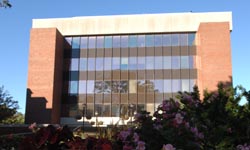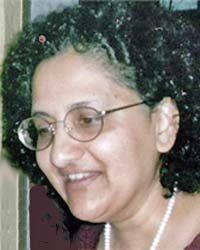



hosted by Illinois State University
Normal, IL, USA
Bone Student Center


|
May 20-22, 2010 hosted by Illinois State University Normal, IL, USA Bone Student Center 
|

| 2010 IEEE INTERNATIONAL CONFERENCE on ELECTRO/INFORMATION TECHNOLOGY | ||||||||||||||||
|
General Information Sponsors |
|
 |
Thursday, May 20, 2010
9:00 am - 12:00 pm Project Management Workshop 3 PDH's |
Workshop Overview
The Project Management workshop is intended for engineers,
technical leads, project leaders, and functional managers who want to practice the
fundamentals of project management to help themselves and their groups accomplish their endeavors,
whether at work, at home, or in the community. Participants will learn basic project
management techniques, and most importantly, how to apply them in real life without excessive
paperwork or overhead! The workshop will include templates and checklists to take away,
and examples of how to apply project management techniques to engineering and personal projects.
Workshop Content
 |
Thursday, May 20, 2010
1:00 pm - 4:30 pm Leadership Skills Workshop 3 PDH's |
Workshop Overview
The Leadership Skills workshop is intended to help prepare participants in interpersonal,
group, team and leadership skills. The workshop is targeted to those in management or leadership
roles in business, industry, academia or volunteer activities. However, anyone interested
in further developing these skills in dealing with people and working within any type of
organization will benefit from the workshop. The format for the workshop includes the
presentation of the core material and interactive participation; using exercises, case
studies and open discussion.
Workshop Content
 |
IPv6 Tutorial
Friday, May 21, 2010 10:30 - 12:00 / 1:00 - 2:30
Nalini Joshi Elkins 3 PDH's will be awarded for attending all 3 Tutorials in this series |
Transition to IPv6
The American Registry for Internet Numbers (ARIN) announced in May, 2007 that ISPs should use IPv6. ARIN has also implemented a pricing policy to encourage use of IPv6 for ISPs. Microsoft Vista is enabled for IPv6 'out of the box'. The transition to IPv6 seems inevitable in the next few years. What transition techniques may be used for IPv6? What might the migration issues be? In this session, the speaker will discuss:
IPv6 planning and migration is starting at some large Fortune 500 companies. Labs are being set up, address planning and security issues are being explored. What are the issues when your organization is one of the pillars of our economic system? Conversion on this scale requires the concerted change of many moving parts. You may liken it to the conversion of one currency system to another!
The speaker will discuss potential strategies and the decisions which need to be made based on work with Fortune 500 companies in the financial and health care sectors. New diagnostic methodologies will also be discussed.
One of the new challenges with IPv6 is structuring the addresses which will be allocated in your enterprise. In IPv4, the variable length subnet masks (VLSM) is often used to allocate addresses to routers and links between routers. In IPv6, there is no such concept. Or is there? In IPv6, the prefix (/48, /56, etc) is often used. We need to learn to become quite familiar with the usage of the prefix and see how that may help us to manage our addresses. This session will discuss::
Friday, May 21, 2010
3:00 - 4:45 PM Data Security Fundamentals for Power Systems Personnel 2 PDH's Ray Klump |
This presentation will describe the ways in which data is kept secret, verified to have come from a particular origin, and protected from unwanted modification while in transit. Such technology, which belongs to a field called Encryption and Authentication Systems, is very important to understand if you are an engineer or manager considering how to protect measurement and control data on the emerging smart electrical grid. This talk will explain symmetric and asymmetric cryptosystems and then explain how they are and may be applied to electric power applications.
|
|
Saturday, May 22, 2010
10:30 - 12:00 PM
Advancements Towards Sustainable Transportation Systems 1.5 PDH's Dr. Alireza KhalighDirector, Energy Harvesting and Renewable Energies Laboratory (EHREL) Electrical and Computer Engineering Department, Illinois Institute of Technology 3301 S. Dearborn St. Chicago, IL 60616 Tel: (312) 567-3444, Fax: (312) 567-8976 EML: khaligh@ece.iit.edu URL: http://www.ece.iit.edu/~khaligh/ |
As world continues to rely more and more upon vehicular transportation, the looming problems of fuel supply and air pollution become more imminent. The internal combustion engine (ICE) has long been the mechanism that propels our vehicles, and gasoline has been its major source of energy. This fuel supply is dwindling and researchers are looking for new sources of energy. Demands for higher fuel economy, performance, reliability, and reduced emissions push the automotive industry to seek advanced technologies such as electrification of ancillaries and engine augmentations.
An immediate solution to this problem is essential, and the most promising answer lies in hybrid electric and plug-in hybrid electric vehicle (HEV and PHEV) technologies. The proposed long-term sustainable solution includes (1) integrating the transportation industry with the electric power industry, (2) using electricity as the carrier, and (3) generating electricity from renewable energy sources.
In this presentation, different HEV and PHEV configurations will be presented with a focus on engineering fundamentals as well as state-of-the-art research and development in the components and system integration. In addition, it is focused on drive train configurations and presents a review of conversion strategies to hybridize different vehicles.
Short Biography
Alireza Khaligh is the director of Energy Harvesting and Renewable Energies Laboratory (EHREL) at the Electrical and Computer Engineering Department at Illinois Institute of Technology (IIT), where he has established course and curriculum in the area of energy harvesting and renewable energy sources. Dr. Khaligh received the B.S. and M.S. degrees from Sharif University of Technology (SUT), Tehran, Iran, and a Ph.D. degree from Illinois Institute of Technology (IIT), Chicago, IL, all in electrical engineering. He was a Post-Doctoral Research Associate in electrical and computer engineering department in the University of Illinois at Urbana-Champaign (UIUC), Urbana-IL.
Dr. Khaligh is the recipient of the 2010 Ralph R. Teetor Award from Society of Automotive Engineers and 2009 Armour College of Engineering Excellence in Teaching Award from IIT. Dr. Khaligh is a Member of the Vehicle Power and Propulsion Committee, IEEE Vehicular Technology Society (VTS), a Member of IEEE Power Electronics Society (PELS), Industrial Electronics Society (IES), Education Society, a senior member of IEEE, and a member of Society of Automotive Engineers (SAE).
Dr. Khaligh is the principle author/coauthor of more than 70 papers, books, and invention disclosures. He is an Associate Editor of IEEE Transactions on Vehicular Technology. Dr. Khaligh was a Guest editor for Special Section of IEEE Transactions on Vehicular Technology on Vehicular Energy Storage Systems and a Guest editor for Special Section of IEEE Transactions on Industrial Electronics on Energy Harvesting.
|
Saturday, May 22, 2010
1:00 - 2:30 PM Safer Browsing – Protecting Yourself on the Wild Web 1.5 PDH's
Herb Todd |
The Internet can be a dangerous place. What are the real threats to Internet users? What can a user do about them? We will explore real would exploits and threats and see how we can mitigate the risks.
Topics Covered:
|
Saturday, May 22, 2010
2:45 - 4:30 PM Secure Applications – Hack-proofing your App 1.5 PDH's
Herb Todd |
The biggest cyber threat today is insecure applications. Do you write rugged hacker resistant software? If you don't – you should! You should know about the threats and how to “bake” security in during each phase of the Software Development Life Cycle (SDLC).
Topics Covered:
Security|
Saturday, May 22, 2010
2:45 - 4:30 PM Prairie North Medical Device Research to Product Deployment: Examples and key challenges in industry research 2 PDH's E. Clif Burdette, PhD |
This tutorial is intended to provide an overview of the field of image-guided interventions as well as the use of ultrasound and x-ray imaging for interventional procedures. This will cover the main technical topics in image-guided interventions including tracking, registration, tool guidance, and robotics. An emphasis will be placed on the translation from research to a commercial product. Clinical applications will be emphasized. The ultrasound discussion will cover the emerging field of interventional ultrasonography, which is a rapidly developing technique for guiding minimally invasive surgical interventions. Integration of multiple systems for image guided therapy (IGT) has created a demand for both standardized communications protocol and a need for platforms upon which various unique applications can be configured. Missing is a mechanism to bring together the benefits of these advances in a manner such that research algorithms can be implemented within commercial systems software and conversely, whereby commercial software can support innovation from research and translate new capabilities effectively into clinical applications through a software platform developed for the purpose of meeting ISO and FDA quality system requirements for control, documentation and testing. A current example of one method for achieving rapid translation within a commercial quality software framework will be presented for discussion. The tutorial aims to bring academic, clinical, and industry researchers together to help boost collaborative research and cross-pollinate ideas across clinical applications. It is anticipated that the workshop will be suitable both for the newcomer to image-guided interventions as well as established researchers from related fields who want to get an overview.
Everette C. Burdette, Ph.D. is President/CEO of Acoustic MedSystems, Inc., a company dedicated to image-guided medical interventions and localized therapies using high intensity ultrasound. He serves on the corporate boards of Provena Health System Central IL Region, Oncology Systems, Inc., Acoustic MedSystems, Inc. and Precision Therapeutics, Inc. Previously, he was Vice President of Research and Clinical Design at Computerized Medical Systems (CMS) and President of the Image Guidance Division. He was President and Chief Executive Officer of Burdette Medical Systems from its inception in 1997 until its acquisition in 2002. Dr. Burdette holds a Ph.D. and MS degrees in Electrical Engineering and in Physics, and BS in Physics from the Georgia Institute of Technology, and a PhD in Physiology from Emory University. He was Director of Advanced Technology Development for Dornier Medical Systems, Inc., a German company, from 1992-97. He was President of Labthermics Technologies, Inc., a medical therapeutic equipment company, from 1986 to 1992. He founded four medical device companies and sold two of them. He was a faculty member at the University of Illinois at Urbana-Champaign, Emory University School of Medicine, and Georgia Tech. He is currently an adjunct professor at Johns Hopkins. He has worked in the radiation oncology, hyperthermic oncology, ultrasound imaging, and urological fields for 27 years and prior to that worked in the development of radar systems and microwave devices for military applications for 7 years. He has managed the development of ultrasound and electromagnetic medical devices for therapeutic and diagnostic applications for 2 years. He has authored over 200 technical reports, conference proceedings, papers, and scientific publications and 7 book chapters. He holds 34 patents.